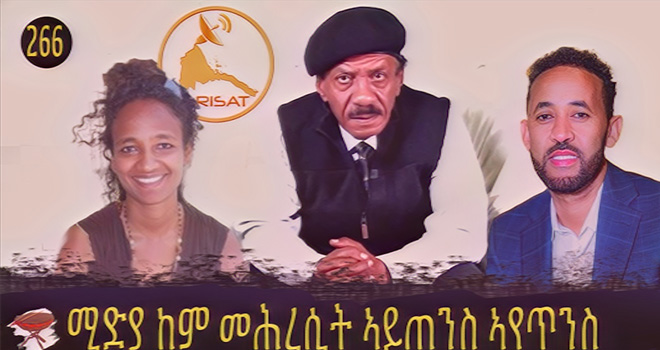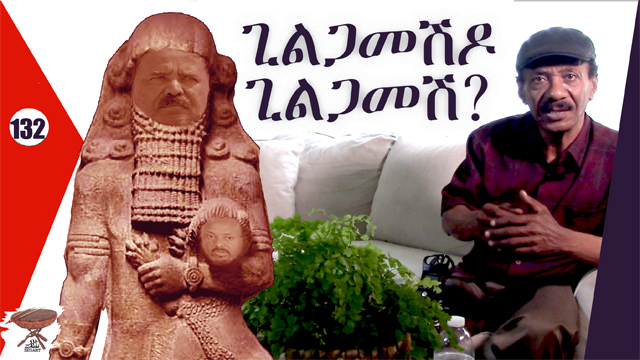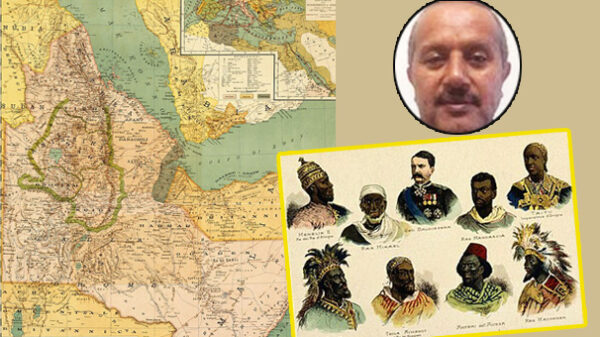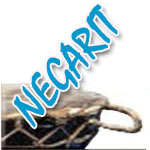The Media is like a midwife: EriSat as an Exhibit
Gambling is risky—sometimes lucky—and “the winner takes it all” is the title of the ABBA song. No one knows the results. If they knew, it wouldn’t be called gambling. And what is happening to EriSat* saddens me.
In a way, a court trial is like gambling. Both nemeses believe they are right, but the opponent is wrong.
Why do we struggle? Why haven’t we achieved the goals of our struggle? And why do we need to struggle in the first place? It’s a human experience, and we should not be bitter about it. Problems require a struggle to resolve them, and at the end, the dedicated succeed.
Is bidding gambling? I think it’s a fair game, but many times it is not.
Bids are submitted in a secret sealed envelope, but corrupt officials open the envelopes to tell a relative or friend about the lowest price, who would beat the lowest bid and win: bribe, favoritism, etc.
Once, a man I knew wanted to rent a store in a building that the government owned. The official asked him what he wanted to use it for, and he told them. The officials decided to float it in a bid. The businessman protested, “But it’s my idea?” The decision was made, and he had to submit a bid like the rest. He did.
After some time, he visited the authorities, and they told him, “Congratulations, Auguri, your bid came out in second place.” He melted down.
The officials didn’t know that a woman can’t be half-pregnant; she can either be pregnant or not.
But beware, the officials who handled the bid are not. But if you want to go wild with your imagination, go ahead. However, the poor PFDJ is not corrupt, it even doesn’t know the meaning of corruption!
Money is dirty, politics is dirty; what is clean?
The last few weeks, news about EriSat suppressed Gaza news in many Eritrean circles; it made me think about our collective knowledge and ignorance.
There is a research finding known as the Dunning-Kruger effect. Not all people are equally knowledgeable about certain topics, and many rarely admit their ignorance. Instead, they pretend to be knowledgeable. The effect also makes the knowledgeable think everyone is as knowledgeable as them. Thus, they depreciate the value of their knowledge.
The author William Feather once wrote, education is the ability to recognize what you know and what you don’t. Sometimes, we hear the beginning of a story, and try to guess and steal limelight while trying to explain the rest of the story. Yet, the fact that we might be wrong about our conclusion rarely crosses our mind; we do not believe we could be ignorant about some of the story. Let’s see what we know or don’t about the following: 1) Free press. 2) Ownership of public entities and role of the board of directors.
I will try to explain the basics of journalism briefly.
Free press:
I have yet to meet anyone who admits that what they know about free press is just the term, not what it really means.
In a senate committee hearing in April 2018, Zuckerberg, the CEO of Facebook, admitted his social media platform played a role in public damage, “It’s clear now that we didn’t do enough to prevent these tools from being used for harm as well. That goes for fake news, foreign interference in elections, and hate speech, as well as developers and data privacy.”
An example: how social media damages journalism.
Journalism is a broad term, and among others, it includes advocacy journalism, meaning its goal is to advance certain agendas and viewpoints to influence their audience. There is investigative journalism that focuses on different topics and uncovers everything of concern to society; there is political journalism, sports journalism, etc.; and there is tabloid journalism that is not as serious as traditional journalism. The worst is yellow journalism (or sensationalism), which adores bickering and anything that attracts crowds. It’s all about exaggerations and rumors.
Trained journalists are supposed to have principles, have high moral grounds, and be honest. And that is lacking in the psyche of many talking heads who brand their services with flashy names. Yet, they don’t appreciate or consider honesty. In journalism, self-censorship is a must if one is to be useful.
Ownership/Responsibility
It’s impossible to report objectively if one is a beneficiary of a political party or government, or is generally partisan. So, why are people divided and fiercely fighting in support of their favorite sides: Saba-Henok used to work as a team.
There are matters of legality in any licensed institution, including the media. There must be someone responsible for it, someone who faces the court if the organization is sued, in matters of violations, corruption, or facing the audience with an honest face. The board is supposed to have oversight over general administrative issues, including respecting the laws of the land, finances, and hiring and firing, among other things.
Sometimes, not-for-profit corporations receive outside funding that, generally, prohibits partisanship or serving a foreign interest. If that’s the case, it must be registered with the Justice Department as a lobbying firm. However, though most funders prohibit propaganda and serving a specific political force, intelligence agencies can only operate in that way. Unfortunately, where there is no transparency, the media are suspected of being covert operatives and collaborators with political parties and intelligence services.
Finally, there is the IRS to reckon with. If it issues an entity a tax-exempt status, they are always on the watch. If entities violate or abuse their tax-exempt status, their license can be revoked, and they may even be required to pay IRS taxes retroactively.
That’s a rudimentary brief by a non-lawyer explaining the legal aspects.
Some Eritreans think EriSat is a share company, and anyone who donates money to it, owns a share! There is a difference between it serves the public” and “it’s owned by the public.” Making an incorrect and emotional statement is worthless; it can’t be defended legally.
NGOs are not profit-sharing companies, and the board, or trustee, is the most responsible for any violations. The license must state the name of the owner, whether individually or collectively. If it is dissolved, the articles of association must specify where the cash, properties, and other belongings end up. Otherwise, the court decides how it’s allocated to beneficiaries. In short, EriSat is not a publicly owned entity.
In short, those who took sides and inflamed the situation certainly do not own it. If they did, they should have set their emotions and other considerations aside, and focused on saving it, not damaging it. If that couldn’t be done, and until now, obviously, it didn’t produce results, the court is the only avenue.
In court, lawyers draw their strategies and prepare their arguments, they might even claim any amount they feel is equal to the damage and can explain rationally. It’s up to the court to accept or reject the claim. Such disputes cannot be settled in a court, not in a village like setting under the shade of a tree. EriSat is an American entity, and its issues can only be resolved in an American court. Of course, that is provided all reconciling efforts fail. But even then, an amicable separation is preferred. I am sure you know of people who divorce amicably, with no noise. Contrary to those, make sure it’s a brutal separation involving children, family, and friends. There are ample examples of such foolish dramas.
What amazes me most is that so many people volunteered to reconcile the two sides—I know a few of them are qualified for the job, but the rest? They have no idea what the gist of the problem is or how to resolve it.
And what do I think? A few things we can learn from the EriSat dispute:
- Almost all the agitators in the dispute claim they are activists protesting the Eritrean government for failing to institutionalize it governance. But they need to show their conviction beyond sloganeering. And they have an opportunity to prove they are mature.
- Those who have been belittling and looking down on the traditional Eritrean opposition movements, parties, and associations for endlessly splitting and fragmenting, are now at the forefront of the EriSat mishap. Eritreans are hard-headed and stubborn; would be mediators coming in with those kinds of traits are adding fire to the dispute.
- A few so-called media people are acting like an audience in a wrestling match, waiting for blood to spill. They are biased, prejudiced, and embarrassingly foolish. They are all at it though the PFDJ and the TPLF lots are the worst. All they wish to see is the triumph of the side they support and the humiliation of the other side. It’s a zero-sum; only one side must remain standing.
- The crisis was a good opportunity for all of us to be trained on legal, political, and calm processes. But instead, many are escalating it to the level of a civil war. It’s disappointing to see so-called justice activists complicating the dispute when it is very minor.
- Isn’t it sad to see some people who should be interested in reconciling the nation fail to reconcile their EriSat colleagues? Can irresponsible agitators help the cause of national reconciliation?
- The difference has now festered. Those who think they own the public space have been pushed to the limit. If they feel they have an interest in keeping EriSat alive, they should have worked to save it instead of pushing it further towards the cliff.
I am in the media, and it pains me that EriSat, instead of correcting its mistakes and moving on, is being entangled in unnecessary disputes. It’s catch 22: if you receive funds, you might end up in a quagmire like EriSat; if you don’t, you remain poor like Awate.com and Negarit which never received any institutional funds but operated with our own funds, including some help from a few friends. That’s how we functioned for the last 24 years, with total freedom.
Now, you know we have fundraising going on; this is the best time to remind you: I am grateful for those who donated. The rest of you, please chip in generously.





Awate Forum